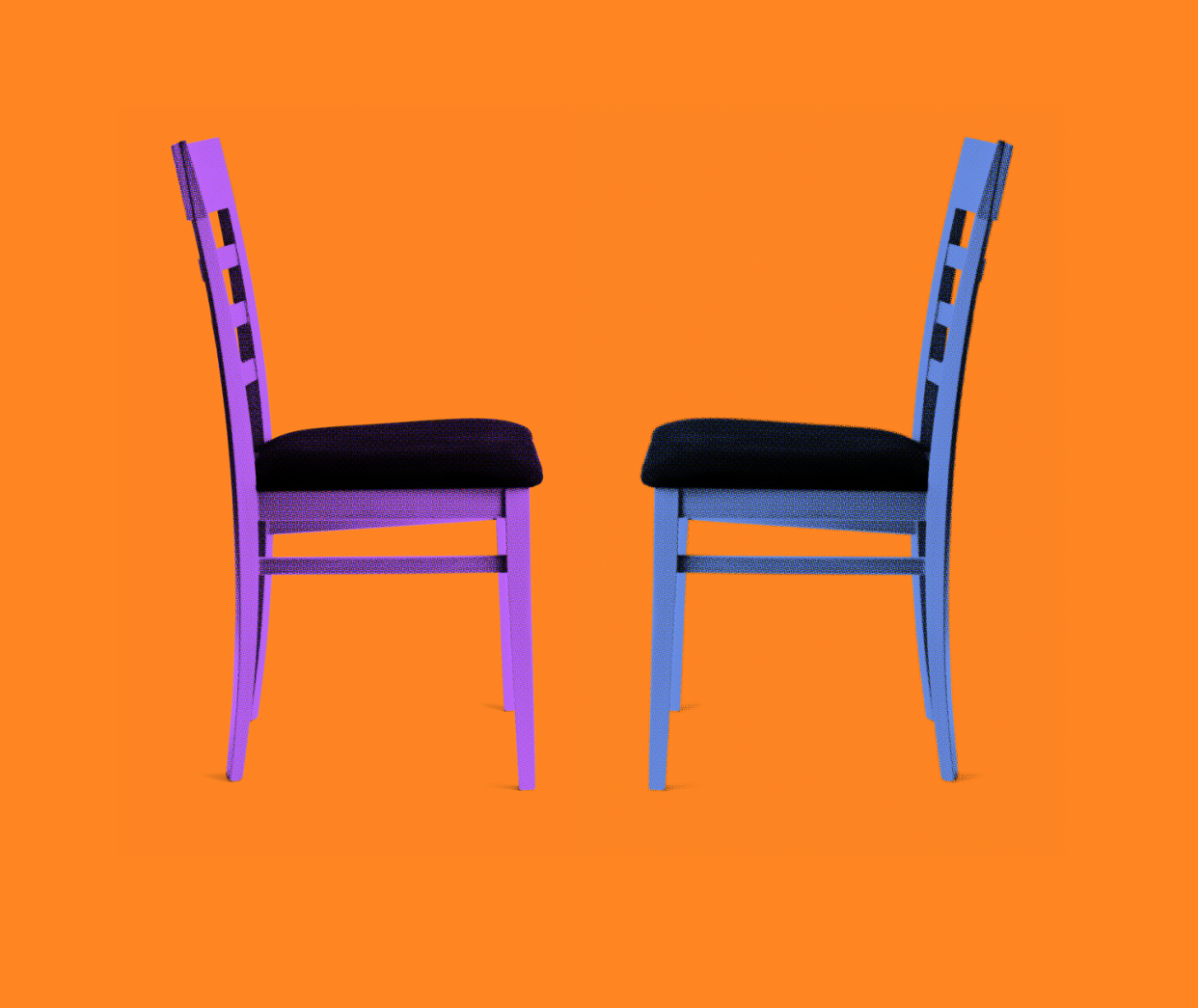How to go about picking a therapist when you have no idea where to start

My first therapy experiences in college were all bad. As students, we weren’t given the opportunity to choose our therapist at the campus health center, and as a result, I never matched well with one: It was as if someone behind a desk flipped a coin and off we went. Needless to say, nothing much productive happened. I wasn’t surprised when my adult therapy experiences ran much the same way, and I cycled through a few therapists — never feeling quite comfortable and never getting much accomplished. But then I found my dream psychiatrist: She listens to me and we agree on standards of care. I walk out of her office feeling heard, feeling better.
This is the type of relationship you want with your therapist. But I know firsthand that it’s hard to get there. You may know, or at least think, that you need a therapist. But you may have absolutely no clue where to start. Let’s talk it through.
The why
First, you have to know what you need — i.e., why are you going to therapy in the first place? Do you need help sorting out feelings about your divorce? Are you feeling overwhelming sadness and suspect depression? Do you want help coping with your ADHD, help with quitting smoking, someone to cheer you on through body changes? Do you want to process a childhood trauma, address current substance abuse, deal with an abusive spouse — or do you need help parenting a difficult child? There are therapists for all these things.
The who
Next, do you want a psychiatrist or a psychologist? A psychiatrist is able to prescribe medication — and that tends to be their primary function, along with some therapy. A psychologist concentrates on ways you can improve your mental health by changing your thinking. They have different approaches you can read about online: cognitive behavioral therapy, dialectical behavioral therapy, hypnotherapy, family therapy, etc. You don’t need to know all the fancy terms. But you need to think about what you want out of therapy. Do you want to work on changing your thought patterns? Cognitive behavioral therapy, or its cousin, dialectical behavioral therapy, is probably a good fit for you. If you need family-based counseling or help for your child, you may need to dig deeper.

When looking into therapy, Dr. Georgia Witkin, Director of Patient Services Development at Progyny, clinical psychologist, Assistant Professor of OB-GYN and Reproductive Sciences at Mount Sinai, recommends, “Start with a list from any national organization for the type of therapy you need — if you need an adolescent therapist, if you want counseling for divorce, or stress — every national organization can give you a local number. I wouldn’t go with a friend’s recommendation because each person’s experience is going to be different and their reason for therapy will be different as well.” The most popular and reputable online source for therapists is Psychology Today’s Therapists , which will produce a list of therapists in your area based on filters for just about everything from specialty (ADHD, adoption, divorce, depression, etc.), to accepted insurance, to gender, age, sexual orientation, and more. You can read biographies that tell you how long someone’s been practicing, the degrees they hold, and their license numbers. Denise Levereaux, a Licensed Independent Social Worker in clinical practice in Spartanburg, SC, says to remember that, “If you do have a psychiatric diagnosis, look for someone who has had specific training beyond graduate school with your diagnosis. Different diagnoses require different methods of treatment.” Dr. Witkin agrees, telling Yahoo Lifestyle: “Don’t be afraid to ask for the therapist’s credentials — different therapy requires different treatment which can mean a different type of therapist.”
After looking at the professional look at the personal. I prefer a female therapist, preferably older — and my psychiatrist fits the bill. Levereaux recommends asking yourself, “Do you want a therapist that is warm and open? Do you want a therapist that seems more like a mentor? A collaborator in the process of growth? Are you more comfortable with a female or male therapist? Young or old? Faith-based or nonreligious? Of a similar or different background as you? Figure out your top three must haves, and your top three no-goes in your therapist as a person.”
The what’s next
Once you pick your dream doc (or several), what then? Levereaux says that first and foremost you decide if you’re going to pay for your therapist with cash or with your insurance. “Many established or specialty therapists are out of network and don’t file insurance themselves. This can absolutely be worth it, but it will be an investment that you need to be aware of beforehand. Nothing feels worse than going to a therapist, pouring your heart out, only to realize two sessions in that you can’t afford to keep going,” she says. And even if you use insurance, she says you need find to out, “Do you have to meet a deductible, and then have a copay and coinsurance after that? Is your copay separate from your deductible? Does your copay or coinsurance continue after you’ve hit your out of pocket max for the year? These answers will help you make decisions about how much therapy you can afford, and how frequently you can go. This will help you decide what type of therapy will work with your budget.”

Once you go to that all-important first appointment, Witkins says to remember that, “You are the consumer. Don’t go in with the mentality that you’re the victim or the patient. You’re spending the money and it should be your choice.” Levereaux says that she asks her patients to give her three sessions to get the feel of how they might work together to achieve the patient’s goals: “I generally tell clients to give me three sessions — the first one is all assessment and explaining office policies, so it’s not a good feel for the flow of the session.”
However, as Witkins reminds us, “You’ll know if you’ve found the right therapist if you see change. Just talking isn’t the same as therapy. It’s also important to see how good they are at helping you identify your problem, how you and your therapist can make it better (the treatment plan) and the cost. It’s not ideal to talk to a therapist for months with no diagnosis and no treatment plan. Lastly, it’s important you feel comfortable with your therapist which is why it can take a few before you find the right one.” It might take meeting with two or three therapists before you find that perfect person.
As for me, I finally settled with number three — and I’ve been seeing her for seven years now. Don’t be afraid to stop going to someone who you just know isn’t for you. You have to be an advocate for your own health care, and that might mean walking out the door. When it comes to therapy have a goal in mind, do your homework, and make sure the person you pick makes you feel heard, helped and comfortable. It’s for your own mental health. And that’s why you’re there in the first place.
Read more from Yahoo Lifestyle:
Airline accused of ‘disability discrimination’ for kicking off teen with Down syndrome when he vomited
Man praises his wife’s work as a nurse: ‘Your nurse is probably putting her life on hold for you’
The high cost of healthcare is keeping Americans from going to the doctor
Follow us on Instagram, Facebook, and Twitter for nonstop inspiration delivered fresh to your feed, every day.

